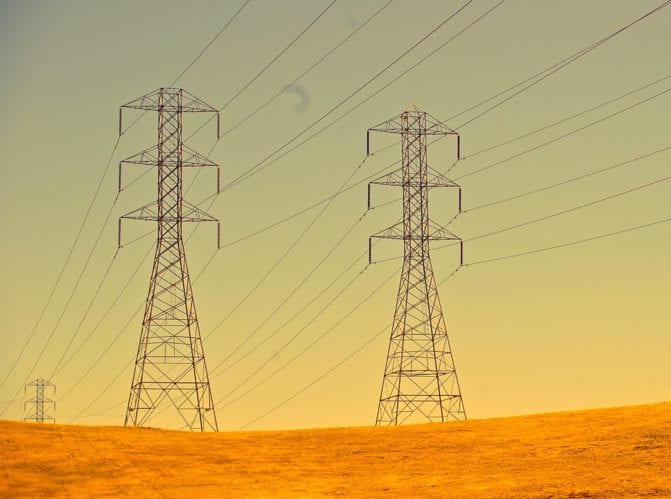The energy industry in Australia will not have been best pleased by the conclusions of the Climate Change Authority’s draft report on caps and targets delivered this week. Or at the least the fossil fuel component won’t be pleased, and that’s the overwhelming majority.
The CCA had a simple message for the energy industry. Business as usual is no longer be tenable. The idea that the integration of renewables has been “too successful” and should be slowed down or halted – for the sole purpose of protecting the revenue models of incumbent generators – is fanciful. Or at least it should be.
The problem is that while this is a message that the energy industry will not want to hear, there is every chance the message will not be heard. And certainly not in the corridors of government.
The CCA report is one of the most crucial reports produced this year – produced by an independent body (a Reserve Bank of carbon, and headed by a former RBA governor), that is looking at the science, the action of other countries, and how Australia should approach the issue.
The government has promised to dismantle it. It may not even get to produce its final report. And the printed media has virtually ignored it.
The Sydney Morning Herald gave the report the most prominence, but even that was on page 9. The Daily Telegraph didn’t report it at all in its news pages, apart from a column in the business section from business commentator Terry McCrann, who described it as “177 pages of sheer drivel” and used it as a platform for arguing that all wind turbines should be pulled down.
The Australian newspaper buried it in a small story in the bottom half of page 8, underneath a story about Treasurer Joe Hockey being “rescued” from protesting students. Its report focused on Environment Minister Greg Hunt’s response to the CCA report and his vow to do nothing, apart from closing down the CCA. The report itself merited just 100 words.
The Australian Financial Review placed its story on page 8, focusing again on Hunt’s pledge of inaction and playing up “industry’s” complaint that lifting the target was all too hard – even though the CCA had pointed out that doing nothing more than what had been agreed by both parties and supported by industry three years early would deliver a reduction of around 14 per cent.
So what readers of the printed press would not learn is that the CCA report says the country cannot afford to delay climate action. If it does so, it risks becoming a “backwater’ to the global economy. It points to an emission reduction target of 15 per cent as a bare minimum, and may even go to 25 per cent should it deliver its final report in February. It says the costs of such a reduction plan would be minimal – and with a carbon price and access to international permits the cost would be barely visible.
The report focuses on the opportunities available in the electricity industry, which it says the greatest single source of domestic abatement. Just to modify this message to the energy industry: Australia cannot afford to wait while the coal-fired generators run to the end of their stated life-spans.
That underlines the CCA’s support for the renewable energy target. The costs of renewables are coming down quickly, and having a support mechanism that guarantees renewables will be built accelerates the exit of fossil fuel generation.
In Queensland, the amount of mothballed and closed coal-fired generation is roughly equal to the amount of solar that has been put on rooftops. Energy insiders say that is no coincidence.
The CCA indicates this is a good thing. New analysis that it will release soon shows that if technology costs for solar are lower than expected, then annual emissions could be about 50 million tonnes lower from the mid 2030s onwards than its medium scenario. Given that rooftop solar is now being put on household roofs with little or no subsidy, that is a powerful enabler and driver for households, who can also reduce their electricity bills, and cheap abatement.
Energy efficiency has the same impact on the grid as solar PV, because it reduces demand. Which is why some generators have fought so ferociously against such measures, and why the recommendations of the task force for energy efficiency have not been acted on for three years.
The CCA says energy efficiency measures might include standards for electrical appliances and buildings that lower electricity consumption., as well as standards help combat split or perverse incentives for investing in energy efficiency while still allowing consumers the same appliance functionality.
The CCA notes that 40 per cent of sectoral emissions out to 2020 can be achieved by reducing demand. This would deliver abatement at low cost, or even at positive net present value. And it could reduce electricity bills for consumers and offer other benefits such as reduced capital expenditure on grids.
Of course, existing fossil fuel generators can also reduce emissions by upgrading turbines, modifying boiler operations, retrofitting plants with new coal-drying technologies and co-firing with low-emissions fuels. The CCA notes that “several Australian generators plan to do so “ but it is likely that any such plans will now be subject to getting handouts from the government under the emissions reduction fund.
In the meantime, some of the scenarios painted by the CCA are a horror show for the incumbents, or at least those that don’t want to change. These include coal-fired reduction being reduced to 9 per cent by 2030, at which time renewables could account for 69 per cent.
That, though, would rely on a carbon price scenario. That is likely to go soon. The next policy on the radar, the renewable energy target, will come under attack once the government can finally do away with the CCA, which rejected the fossil fuel industry’s entreaties in its review last year.
Right now, the combination of incumbency and sunk investments, regulatory fiat, and a supportive Abbott government are the last aces they hold in their pack. And they have nothing to fear from the mainstream media.






